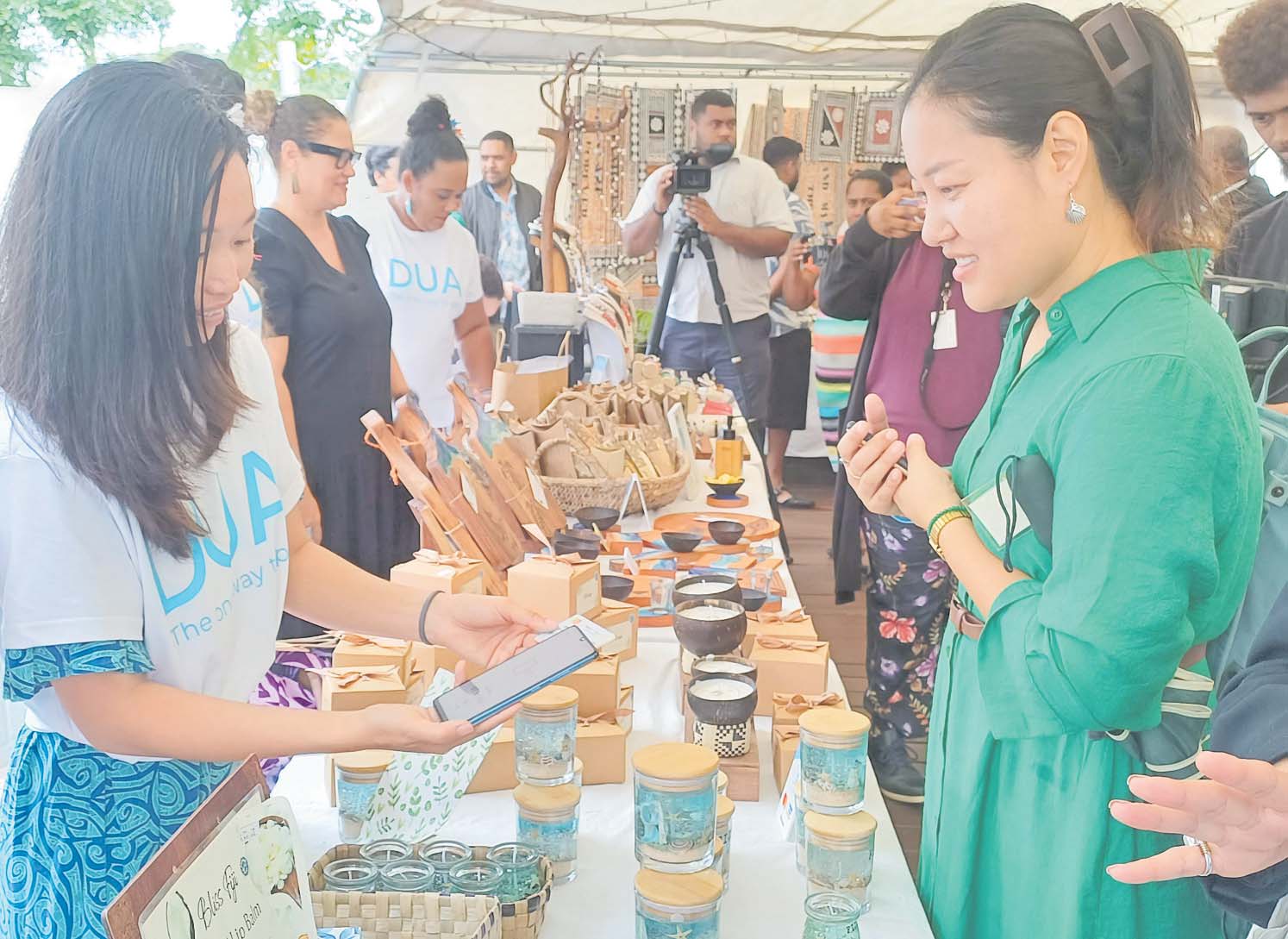Today we raise awareness of the tremendous contributions of micro, small and medium-sized enterprises (MSMEs) to Fiji with the global theme, “Leveraging Power and Resilience of Micro, Small and Medium-sized Enterprises to Accelerate Sustainable Development and Eradicate Poverty in Times of Multiple Crises”.
‘Multiple crises’ is a phenomenon that many MSMEs in Fiji can relate to. The years 2019 to 2021 were perhaps the period in Fiji’s history when multiple crises most impacted our MSMEs and our progress towards the Sustainable Development Goals (SDGs).
They were not all imported or climate change induced disasters. One was a locally “human-made” economic crisis.
In 2019, the over vocalised “unprecedented economic growth” just gave us a one per cent economic growth.
Through uncontrolled spending and borrowing, debt increased by 30 per cent and Government found itself $1 billion short on revenue.
Credit for investment and consumption declined and Fiji’s ranking for ease of doing business dropped.
Then in March 2020 our first case of COVID-19 emerged. A month later all flights were grounded and more than 93 per cent of hotels were closed.
This created a domino-effect, impacting thousands of MSMEs that depended on our tourism industry.
Within four months of COVID-19, MSMEs involved in tourism had already lost seven times more income than MSMEs in non-tourism sectors.
Without empathy, the pandemic struck during our cyclone season.
In April 2020 Tropical Cyclone Harold (Cat 4) impacted the Western Division. The saturated rain caused major flooding in the Central Division.
In December the same year, Tropical Cyclone (TC) Yasa (Cat 5) impacted the Northern Division.
While MSMEs were still grappling with lock downs, curfews and the new normal business protocols, TC Ana (Cat 1) made landfall in Ra in February 2021, with tropical depression Bina following behind.
These systems combined to cause major flooding in the Central, Northern and Western divisions.
These multiple crises within two years came at a cost of approximately $2.7-$3billion or 30 per cent of Fiji’s Gross Domestic Product (GDP).
However, if we add the impact of TC Winston (Cat 5) and the two flash floods in 2016 and TC Sarai (Cat 1) in 2019, it would be approximately $6.5billion in costs.
That is about 65-70 per cent of our (current) GDP, wiped out in six years due to multiple crises.
Yet, post COVID-19, the share of MSME contribution to GDP has increased from 15 per cent to 19 per cent and the sector continues to employ the majority of Fiji’s labour force.
The demand for cooperative forms of businesses has increased as they currently hold $151million of asset, earn a revenue of $26million and generate a profit of $2.5m for its members.
Out of the 7401 contributing employers to the Fiji National Provident Fund (FNPF), 92 per cent are MSMEs.
In the last three years and despite facing multiple crises, MSME total tax and FNPF contribution was $452.5m.
Although Fiji has regressed on SDG 8 and SDG 9, our MSME sector has the power to create local jobs, empower women, youths, indigenous communities and persons with disabilities, unlocking critical pathways to recovery and accelerating economic growth and resilience.
The resilience of MSMEs has been unwavering.
They got hit the hardest during the multiple crises, yet they bounced back up ready to build forward.
The support from Government, private sector organisations, development partners and donors continues to create opportunities for their resilience.
The current high cost of doing business, increasing minimum wage, high inflation, lack of skilled workers and the suspense of the next natural or human-made disaster, continue to haunt MSME owners.
Unlike salary earners, they do not have the luxury of paid annual, sick and maternity leave or a guaranteed fortnightly income.
We thank the MSME owners for getting up early every morning and hustling for their families, communities and our economy.
n Edward Bernard is a regional development consultant specialising in private sector/MSME development and disaster assessment and recovery. He has a Masters in Business Administration (MBA) and has more than 20 years of experience working for the United Nations, Fiji Government, University of the South Pacific, Fiji National University and the private sector.



